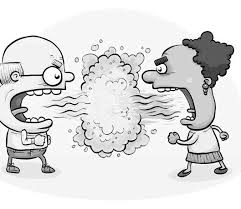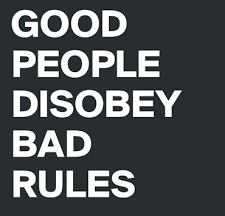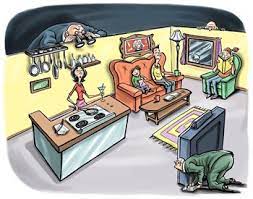 May 2024
May 2024
A toxic board or board member is when ego, self-interest or both get in the way of making decisions in the best interests of the community. This may include individuals who are used to getting their own way or prone to bullying. They may ridicule, belittle or coerce other directors into supporting them.

Toxic board members are less inclined to oversee financial, maintenance and managerial decisions in the best interests of the community. Their focus is to deter, discredit, disrespect or distract the community or other directors from effective decision making. They cause conflict and damage the community.
Condo Governance
When a condo board has individuals who will not or cannot get along, or who have priorities and an agenda that conflicts with the rest of the board or community, it is difficult to govern effectively. Individuals who threaten others sap the energy of other volunteers trying to do their best. Focusing on politics is an unnecessary distraction from making good decisions that hurts everyone. Toxic individuals impede the progress and decision making of an entire condo board.
Directors who think or act as if they are ‘above the law’ are a danger to the community. Those failing to abide by the corporation’s governing documents, who ignore the declaration, by-laws and rules cause division and inequality. Owners no longer trust the board or have faith in their decisions. This is to be avoided at all costs, for obvious reasons.
Toxic directors may inappropriately disclose and misrepresent information to obtain community support. Major projects take longer to get approved and completed. They can refuse to follow a set agenda at board meetings. They may cause good condominium managers to seek employment elsewhere. Toxic directors take advantage of others who are uncomfortable with and unwilling to curtail their behaviour.
The Solution
 Toxicity should not be ignored or avoided. Unacceptable behaviour and remarks should be called out as they happen. Acknowledge that there is an issue that needs to immediately be addressed. Ignoring that individual gives them more power when they know they can get away with their actions.
Toxicity should not be ignored or avoided. Unacceptable behaviour and remarks should be called out as they happen. Acknowledge that there is an issue that needs to immediately be addressed. Ignoring that individual gives them more power when they know they can get away with their actions.
Bad behaviour should not be tolerated. Other board members have the power to demote or replace an officer of the corporation thus giving them less power. Directors can go to owners and ask them to remove a board member by vote.
It is up to board members to police themselves. When one director is out of line, others can insist on enforcing a code of conduct. The president is first among equals and should lead in ensuring that everyone has an opportunity to speak, voice dissenting opinions and debate before a decision is made. Personal attacks, accusations and even hints of conflict of interest should not be tolerated. Individuals who are overly emotional or having a clear conflict of interest should be asked to recuse themselves.
Situations should be addressed quickly. The longer they are allowed to continue, the harder it is to correct them.
Effective condo boards are comprised of individuals who work together. This requires a degree of trust and an expectation that each comply with their fiduciary obligation as an elected director. Once an item is put to a vote, the board should speak with a single voice to the community.
 The dangers of a toxic board are serious. They infect others and affect their actions. Dealing quickly with toxicity is the only way to avoid more serious problems.
The dangers of a toxic board are serious. They infect others and affect their actions. Dealing quickly with toxicity is the only way to avoid more serious problems.







